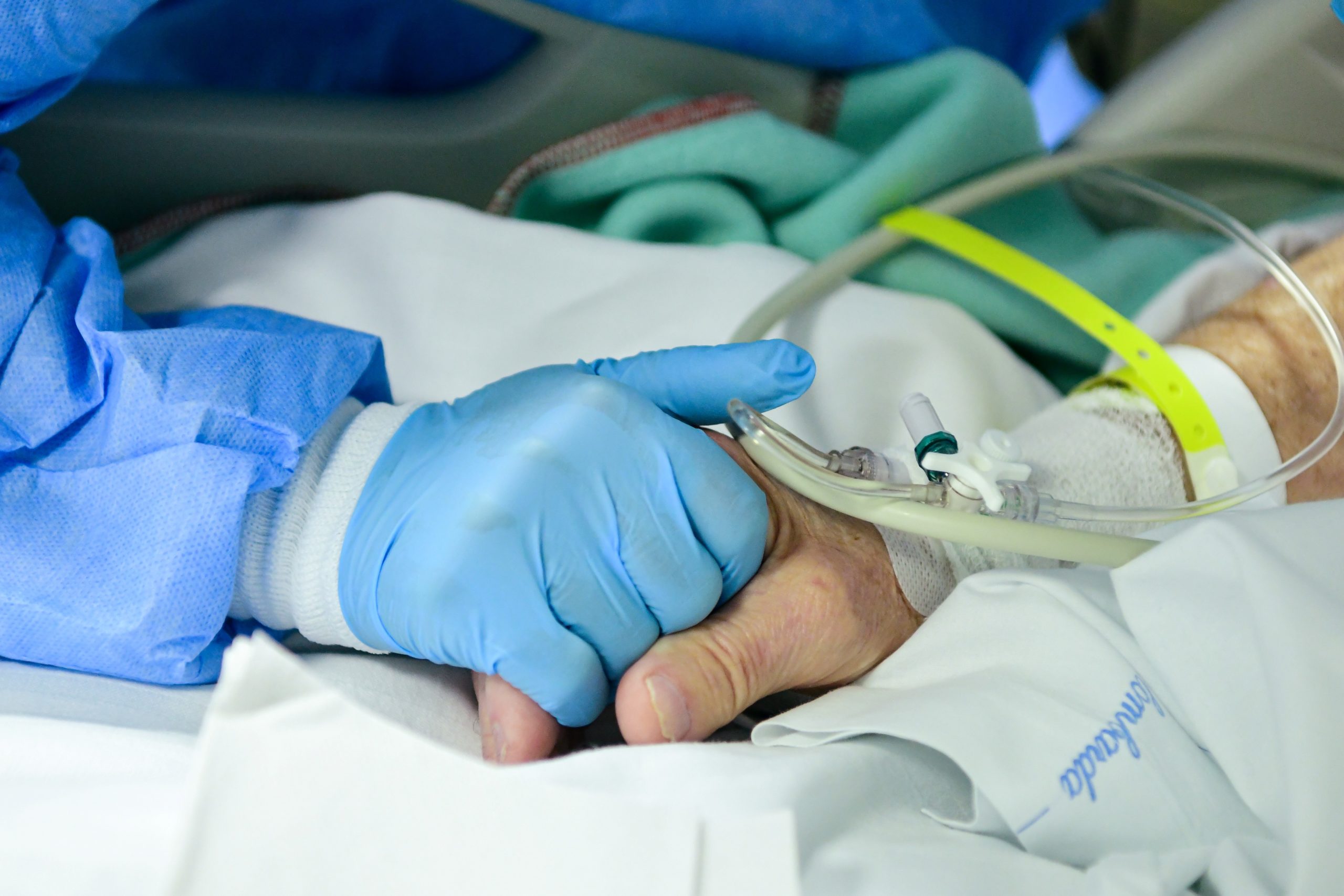LGBT+ people are likely to be more vulnerable to coronavirus (Piero Cruciatti/AFP/Getty)
State lawmakers are urging US officials to record the sexuality of coronavirus victims, as the data could be critical to the LGBT+ community’s safety amid the pandemic.
The CDC currently breaks down coronavirus cases publicly by location, race, gender and age, but not sexual orientation or gender identity.
The information could be essential as the LGBT+ population are thought to be particularly vulnerable to coronavirus due to higher rates of smoking, HIV and cancer, combined with systemic barriers to healthcare.
Other minority groups such as African Americans and Latinos have been shown to suffer higher death and infection rates than the general public, but without data on sexuality it is impossible to determine if the LGBT+ community is experiencing the same.
On Thursday legislators from New York, California, Colorado and Pennsylvania staged a virtual townhall calling for LGBT+ data collection at state and federal levels.
“If you don’t know where it hurts, you don’t know how much it hurts, you’ll never fix what hurts,” said Malcolm Kenyatta, a Democratic Pennsylvania state representative reported by Reuters.
Kenyatta recently introduced a bill calling for state government forms that collect demographic information to include an LGBT+ identification option.
“We are ignored, and the scope of the problem is not readily available in data that we can all share,” he said.
As of May 2 the US has the highest number of confirmed coronavirus cases worldwide, with more than a million infections and at least 65,605 deaths.
“You can’t address a problem you can’t see,” said Randall Sell, a professor at Drexel University’s School of Public Health who specialises in LGBT+ demographics.
“It could be wiping out whole communities and we don’t know.”

LGBT+ charities are reporting a surge in demand from their communities, particularly from elderly people who are more likely to live alone and lack family support networks compared to their heterosexual peers. Those with HIV may have compromised immune systems which further increases their risk.
And LGBT+ youths face a higher risk of homelessness than the wider population, which makes social distancing and safe hygiene difficult.
“Medicine has a long history of ignoring minority groups, including LGBTQ people, resulting in worse health outcomes,” said Jack Turban, a physician in psychiatry at Massachusetts General Hospital.
“We can’t continue to make that mistake.”
